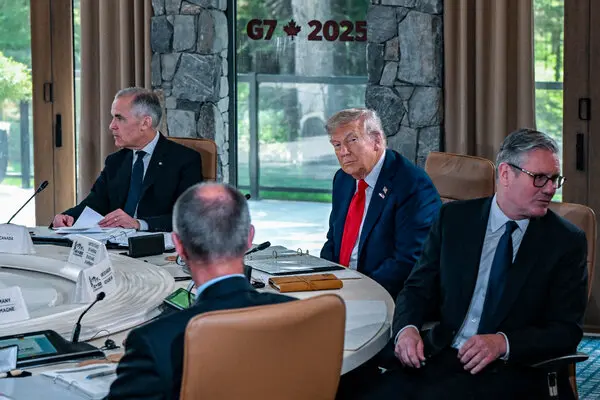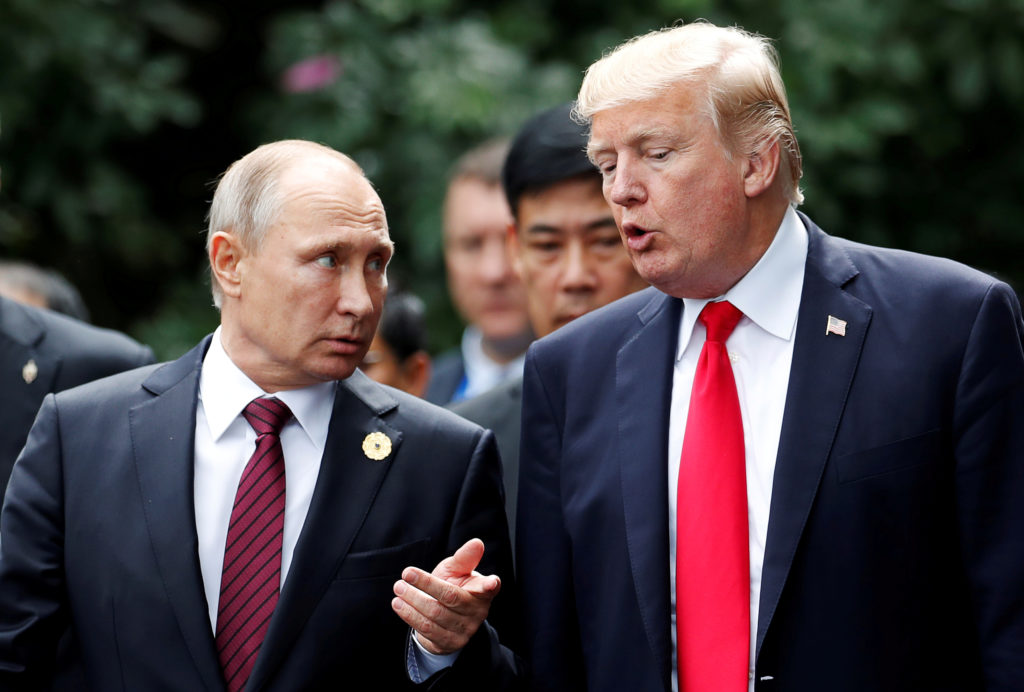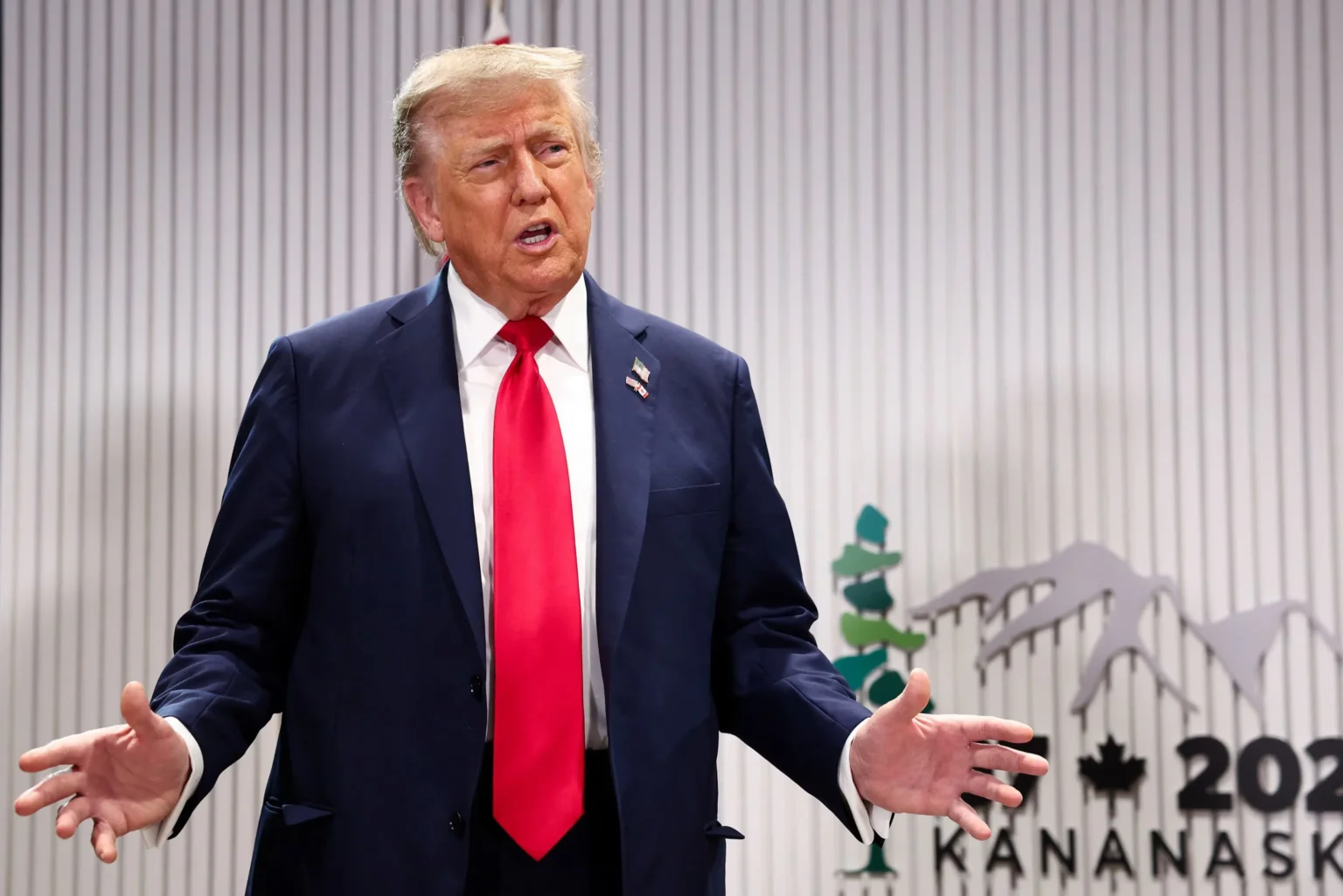World leaders gathered in Kananaskis, Canada, on Monday for a crucial G7 summit, aiming to build a united front on escalating global conflicts — from Russia’s war in Ukraine to rising tensions between Israel and Iran. But unity appeared fragile even before formal talks began, as former U.S. President Donald Trump stirred controversy by defending Russia’s past inclusion in the group and refusing to back diplomatic efforts to calm the Middle East.
Trump Defends Russia, Blames G8 Expulsion for Ukraine War
Flanked by Canadian Prime Minister Mark Carney, Trump reignited debate by claiming that Russia’s removal from the former G8 in 2014 was a “big mistake.” He argued that Moscow’s expulsion after the annexation of Crimea triggered years of isolation that eventually led to the 2022 invasion of Ukraine.

“Putin speaks to me. He doesn’t speak to anybody else,” Trump said. “He’s not a happy person about it… and I agree with him.”
Trump’s remarks immediately exposed rifts among G7 members — Britain, Canada, France, Germany, Italy, Japan, the U.S., and the European Union — casting doubt on their ability to present a unified stance at a time when transatlantic solidarity is critical.
Ukraine and Sanctions: Europe Seeks Stronger U.S. Commitment
Ukrainian President Volodymyr Zelenskiy is expected to meet with G7 leaders on Tuesday, with plans to request additional weapons and reinforce sanctions against Moscow. European leaders, however, are concerned that Trump’s pro-Russia comments could undermine efforts to tighten economic pressure on the Kremlin.

French President Emmanuel Macron dismissed Trump’s proposal to involve Russia in mediating between Israel and Iran, saying, “Moscow cannot negotiate peace when it has initiated an illegal war.”
European diplomats are urging Trump to support harsher sanctions and restore focus on Ukraine’s defense, especially ahead of next week’s NATO summit.
Trump Rejects Draft Statement on Israel-Iran De-escalation
Adding to the tension, a senior U.S. official confirmed that Trump refused to sign a joint draft statement calling for de-escalation in the Israel-Iran conflict. Despite this, Canadian and European officials indicated that the issue would remain a priority in private discussions.
The Middle East crisis has taken on new urgency after Israel launched strikes on Iran on June 12, causing a brief spike in oil prices. Though markets eased on Monday amid reports of a possible truce, G7 diplomats emphasized the need to return to diplomacy.
British Prime Minister Keir Starmer said, “There is a consensus for de-escalation. The challenge now is turning that into clear, collective action.”
Draft Documents and Communique Remain in Limbo
In an effort to avoid a repeat of the 2018 summit — when Trump withdrew support for the final communique — Canada has abandoned plans for a unified final statement. Instead, multiple draft documents have been prepared on issues like artificial intelligence, migration, and critical mineral supply chains. None have received U.S. approval so far, according to diplomatic sources.
“The Europeans are aligned on most fronts,” said one diplomat. “But without Trump’s signature, there’s no guarantee any declarations will emerge.”
What’s Ahead for the G7?
As the summit unfolds, the focus will shift to economic talks, trade policies, and managing China’s influence. But underlying it all is growing anxiety about Trump’s unpredictable stance on global diplomacy, closer ties with Russia, and reluctance to support multilateral resolutions.
The coming days will be crucial in determining whether the G7 can regain coherence or whether Trump’s divergent views will leave the group fractured at a time of global crisis.




